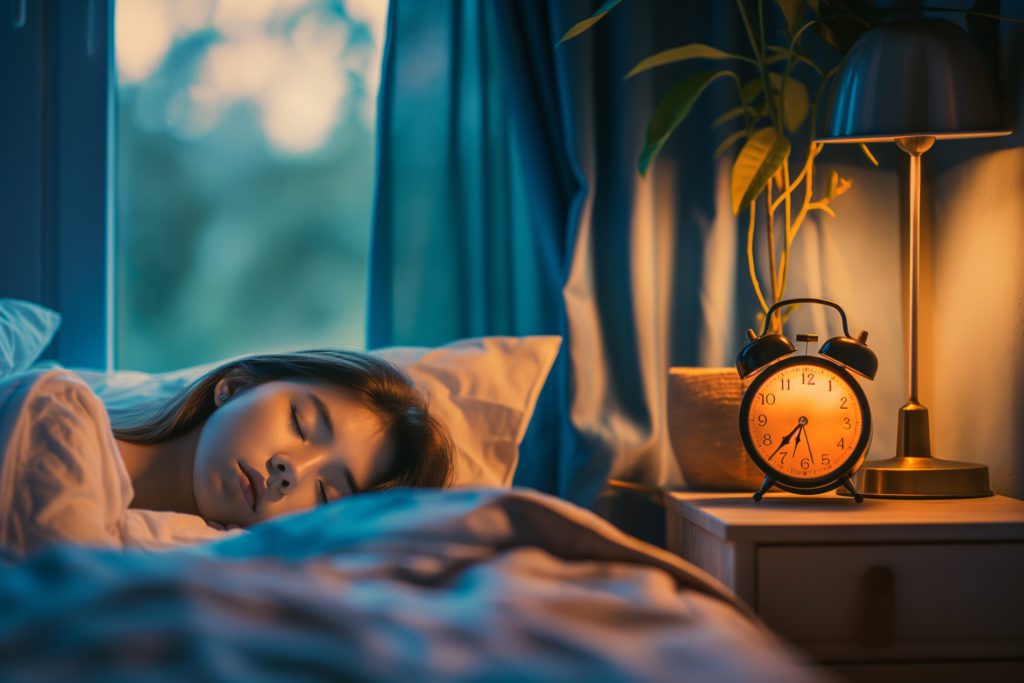
Sleeping with a Fever: Tips for Rest & Recovery
Battling a fever and restless nights? Discover how to improve sleep quality during illness, including managing fever dreams and using sleep trackers.

Feeling feverish? Here’s how to turn down the heat on sleepless nights
Tossing and turning with a fever can turn your night into a long, hot ordeal. You know the drill: you're shivering and sweating at the same time, and all you want is to get some much-needed sleep to help your body recover. But as the clock ticks away, rest seems like a distant dream.
This post reveals how you can reclaim the night, even when a fever tries to take over. We'll explore everything from managing those bizarre fever dreams to using sleep trackers to monitor your night, ensuring you get the best rest possible to bounce back stronger.
How a fever disrupts sleep
Fever throws your body's usual operations off track, particularly when it comes to sleep. Here’s what happens: as your body temperature rises (to 100 F (37.8 C) or higher) in response to an infection, it disrupts the delicate balance of your body's thermoregulation processes.
This means your body has to work harder to regulate its temperature, often leading to increased energy expenditure and a higher metabolic rate. This battle against infection means your body struggles to hit those deep sleep phases that are oh-so-crucial for healing and immune defense.
Then there are the fever dreams—more like feverish nightmares, really. They’re intense and often a wild reflection of your body’s chaos. These dreams can yank you out of sleep just as you're dipping into those precious restorative stages. The result? You wake up more exhausted than you felt at bedtime.
Getting to grips with how fever transforms your sleep can be your playbook for managing those restless nights better when your temperature's up.
Optimizing your sleep environment
When you're feverish, turning your bedroom into a cool oasis can make a world of difference. Here's how to tweak your environment to fight off those fever-induced sleep disruptions:
- Dial down the room temperature: Cooler air helps your body maintain a lower temperature, especially when a fever tries to turn up the heat.
- Use breathable, lightweight bedding and consider adding a cooling mat or a fan to keep things extra chilly. Bamboo bedding is known for its temperature-regulating properties.
- Create a space that’s dark and quiet. Blackout curtains and white noise machines can block out the world and help your overworked body relax.
These adjustments don’t just comfort a feverish body; they set the stage for deeper, more restorative sleep. Making these simple changes can transform your fever nights from restless to restful.
Tips for sleeping with a fever
When fever strikes, getting good sleep can feel like a battle. You're hot, uncomfortable, and restless, wondering if the night will ever end. However, there are ways to make these tough nights a bit easier.
Here are some focused strategies to improve your sleep environment and routine, which can help you manage symptoms and get the rest you need to recover:
Hydration and nutrition
Keeping hydrated is crucial when you have a fever, as your body tends to lose fluids more quickly. Stick to water, herbal teas, or broths, which can help maintain hydration without overloading your system with sugar or caffeine that could disrupt your sleep. Nutrition-wise, focus on light, easy-to-digest meals that won't overtax your body as it tries to rest.
Medication
Over-the-counter fever reducers like acetaminophen (Tylenol) or ibuprofen (Advil, Motrin IB) can be effective in lowering a fever and reducing discomfort. Always follow the dosage instructions on the label or as advised by your healthcare provider. This can help reduce the fever's impact on your sleep.
Sleepwear and sleeping positions
Choose sleepwear that's light and made from breathable materials to help manage your body temperature more effectively. Experiment with different sleeping positions to find what's most comfortable. For instance, slightly elevating your head can help ease breathing if you're congested.
Pre-sleep relaxation
Incorporate relaxing pre-sleep routines to calm your mind and prepare your body for sleep. This could be gentle yoga stretches, deep breathing exercises, or listening to soft, soothing music. These activities can reduce physical discomfort and mental stress, making it easier to fall asleep.
Sleep trackers
Consider using a sleep tracker to monitor how well you're sleeping and how your sleep is affected by fever. These devices can provide insights into your sleep patterns and help you understand the effectiveness of your sleep strategies. Tracking these changes over several nights can help you fine-tune your approach to find what works best to promote restful sleep despite being unwell.
Each of these strategies can help you manage discomfort and maximize the quality of your sleep while you're recovering from an illness.
When to seek medical attention
Fevers are tricky; they remind you that your body's fighting off something, but they also tell you when it's time to call in reinforcements. If that thermometer reads unusually high or the fever just won’t quit, it’s important to consider professional advice. Here are some of the red flags to look out for:
When to seek medical advice:
- Difficulty breathing
- Chest pain
- Severe headache
- Confusion or agitation
- Abdominal pain
- Repeated vomiting
- Dry mouth, decreased or dark urine, or refusal to drink fluids, which may indicate dehydration
- Skin rashes
- Difficulty swallowing fluids
- Pain with urination or pain in the back
When to seek emergency care
- Fever with no sweating
- Severe headache
- Seizures
- Stiff neck
- Confusion
- Repeated vomiting or diarrhea
- Irritability or significant discomfort
- Any worrisome, different or unusual symptoms
Heads up: it’s vital to reach out for medical guidance when home remedies and over-the-counter treatments don't do the trick in managing fever and aiding sleep recovery.
Ready to swap fever dreams for sweet ones?
Your sleep environment and nighttime routines are central to your recovery toolkit, not just for keeping your overall body temperature down. Using tools like sleep trackers not only helps tailor your approach for better sleep during a fever but also sharpens your judgment on when to seek more expert help. So, listen to your body, tweak your sleep setup, and don’t hesitate to call for backup if things heat up.

Written by
Georgia Austin
Professionally trained copywriter, editor, and content marketing strategist with over 7 years of experience—working with brands like Nike, Siemens, Toshiba, Tommy Hilfiger, Culture Trip, and Klook.
Download Pillow
Get help
Press & News
Legal
Connect
X (Twitter)
Company
Copyright © Neybox Digital Ltd.



